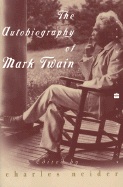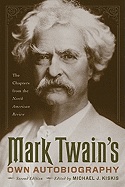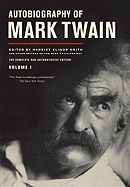Did Mark Twain Invent the Book Embargo?
Déjà vu?
It will come as sad news to libraries trying to keep up with the demand for The Autobiography of Mark Twain that it was featured on NPR’s Fresh Air last night.
Libraries aren’t the only ones behind the curve; the book’s publisher, University of California Press, is working to get more copies into the pipeline and booksellers are kicking themselves for not seeing it coming.
One of the elements fueling the demand is the often-repeated story that it was suppressed for 100 years, according to Twain’s desire to not offend the people mentioned in it. However, as we’ve pointed out before, this is not completely true, since most of the autobiography has already been published (in the current issue of the New Yorker, Adam Gopnik says only 5% of this edition is new material).
So, why the embargo myth? Bob Hirst, director of the Mark Twain Project, who has been working on Twain’s papers for 30 years joked to NPR in an earlier interview,
…can you spell marketing plan? If you say here’s a little bit of the autobiography, but you can’t see the whole thing for a hundred years, you’re gonna sell a book. Mark Twain knew how to sell a book.
Gopnick puts it more pointedly, calling this version of the material, which has been edited and published three times before,
If not exactly a deliberate swindle, it is an endlessly repeated put-on, a shaggy-dog story without a punch line…[that] keeps getting replayed for credulous audiences.
He finds very little to admire in the book, calling it, “…slack and anti-rhythmic. Scarcely a single sentence in the whole thousand pages stands out to be admired.”
Does he recommend reading any of the other versions? No, he finds Life on the Mississippi and Roughing It far superior (try that out on customers demanding the Autobiography).
Bookseller Arsen Kashkashian, (Boulder Book Store) calls the phenomenon The Absurdity of Twain Fever and predicts that “many copies of the Autobiography now in the hands of gleeful customers will end up, after great disappointment, flooding back into the bookstore in 2011 as forgotten used tomes.”



